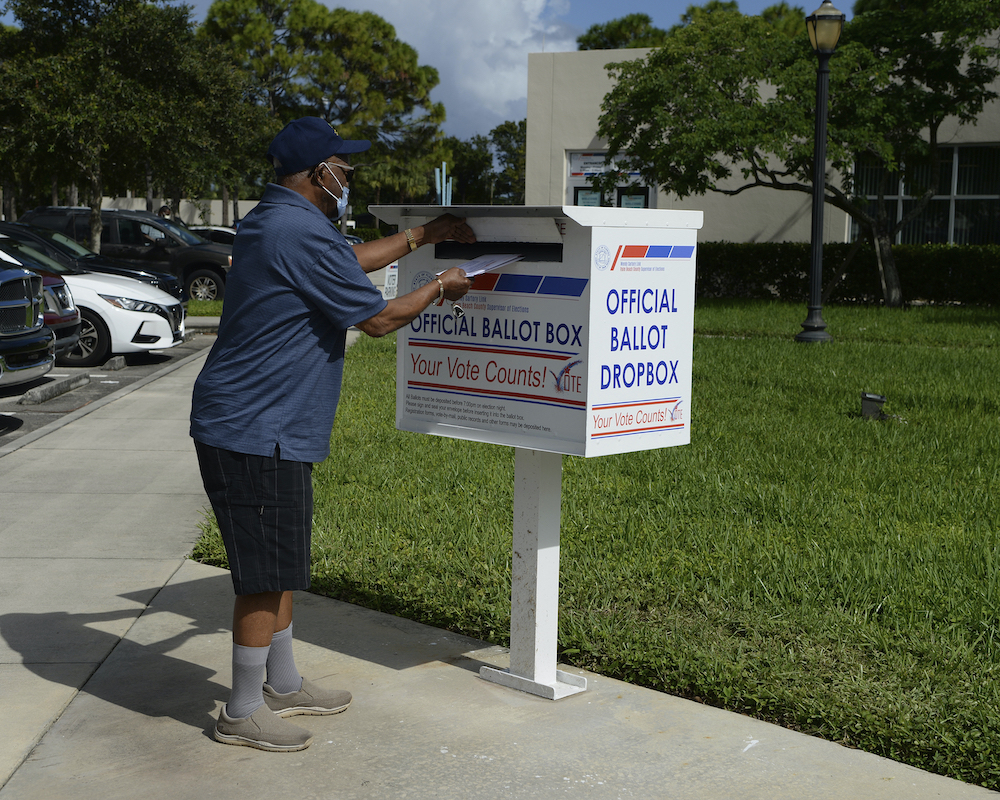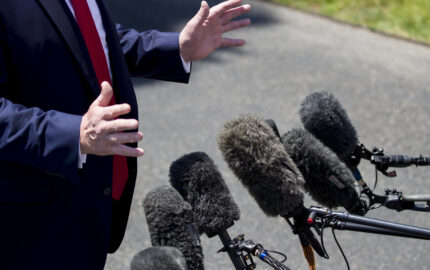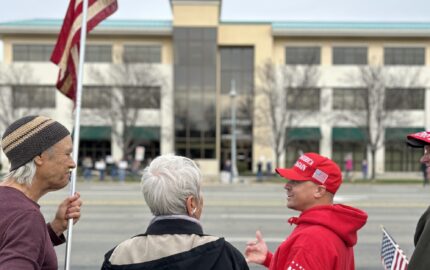For more than 170 years, the world has relied on The Associated Press to count the vote in U.S. elections and deliver the results. We have done this through the Civil War, the pony express, periods of unrest, and world wars.
Counting the vote and calling races is a critical function of the American democracy, and of America’s decentralized election system. It is an essential role that AP has played for nearly two centuries and one that AP will again deliver on in November.
As it does in every election, AP will collect and verify U.S. election returns in every county, parish, city and town across the country, covering races down to the legislative level in every state. This year AP will declare winners in 7,000 contests, doing the work so that the public knows as soon as possible who wins not only the White House, but control of Congress and every state legislature. Thousands of broadcasters, newspapers, digital outlets, and others will rely on AP’s results.
Related Reading
With mis- and disinformation campaigns heating up, a vacancy on the supreme Court, and a President who refuses to commit to accepting the results, the 2020 election arrives at a period of extraordinary uncertainty and tension. Nieman Reports and Nieman Lab are publishing a collection of stories exploring how newsrooms are covering this intensely contested vote and its aftermath.
How Not to Cover Voter Fraud
By Yochai Benkler, Nieman Reports
The election could be contested and last for weeks after Nov. 3. Here’s what experts think journalists should know.
By Sarah Scire, Nieman Lab
Critical Coverage: Cable News and Trump’s Covid-19 Diagnosis
By Celeste Katz Marston, Nieman Reports
This is no small effort. It involves thousands of people working together to collect and check the vote. Only then do we distribute the results to our customers, and only then will you read the results online, see them on the air, or hear them through your Amazon Alexa.
AP calls a race when there is a clear indication of a winner. We are not making a projection or saying a candidate is the “apparent winner.” Our APNewsAlerts say they won. We work as hard as we can to call winners as soon as we can, but we’re guided first by making sure we have all the information we need to make an accurate race call.
To make our calls, we consider first and foremost the vote count and the amount of vote still to be counted, plus polling data from AP VoteCast—which surveys voters online, on the phone and by mail—and our own analytical tools, as well as an enormous amount of research.
Because the U.S. election system is decentralized, each state has its own laws, processes and procedures. That effectively means we are managing 50 different elections on election night. Each state handles mail-in voting differently and has different rules about when it can begin processing and counting absentee ballots, for example. Our research is extensive and ongoing, and that’s on purpose. We must communicate as transparently as possible to the news organizations and customers that depend on us, so they too know what to expect.
It is clear that the 2020 election is unlike any in years past. It appears likely this will be the first election in American history in which more than half of the electorate has their ballot in the box before Election Day. The U.S. is grappling with the coronavirus pandemic and the racial justice movement. Americans are increasingly polarized.
The AP is covering all of these stories the best way we know how: with cold, hard facts. Our journalism reaches more than half the world’s population every day, and that means the stakes are high. Our job is to get it right. We do this by being accurate, unbiased and precise in our coverage; by debunking misinformation; by holding the powerful to account. Our reporters do this every day, not just in Washington but across the country. AP journalists in all 50 states are talking to voters about what matters to them. This kind of reporting is crucial to understanding what will happen when Americans cast their ballots.
A question I am often asked is how soon we will be able to call the winner of the White House. In large part, that will likely depend on how close the race ends up being, and it is still too soon to know that now.
If we cannot declare a winner on election night, it won’t be the first time. In fact, AP was the first to call Donald Trump the winner in 2016—at 2:29 a.m. ET the day after Election Day. In 2004, AP did not call the presidency for George W. Bush until 11:07 a.m. ET, again the day after Election Day. And in 2000, AP stood alone when it assessed the race between Bush and Al Gore and decided it was too close to call.
Not knowing the winner on election night does not necessarily indicate fraud or disaster. It may simply mean that states are taking their time and being careful about tabulating votes.
At the AP, we will also be careful. We certainly want to tell the American people—and the world—who has won the presidency as soon as possible, but accuracy comes first.
You can trust that The Associated Press will declare a winner when there is no chance the trailing candidate will catch the leader. It may take longer than we might like. But rest assured, when we are certain who will next sit behind the Resolute Desk, AP will call the race and inform the public, as we have done with a history of accuracy since 1848.
Sally Buzbee is the senior vice president and executive editor of The Associated Press.



